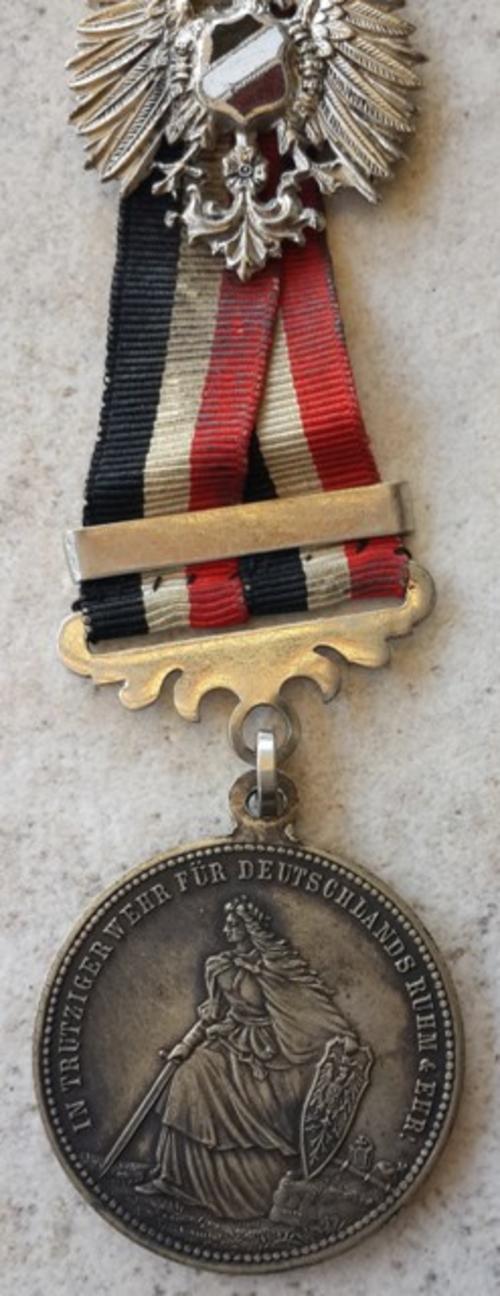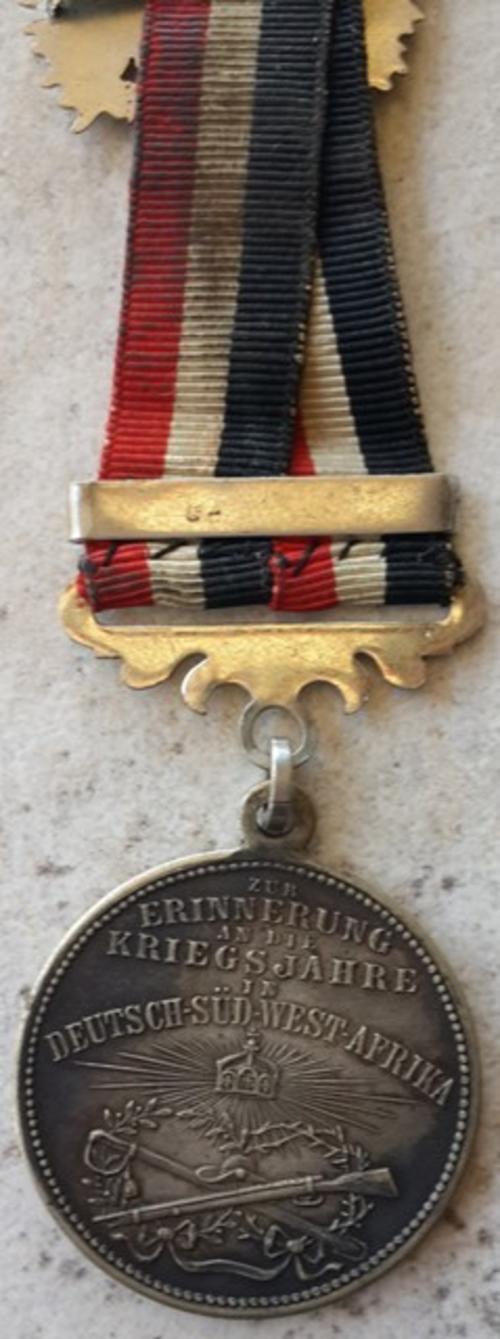Medaille zur Erinnerung an die Kriegsjahre in Deutsch-Süd-West-Afrika medal
Check my rate
| Main centres: | 1-3 business days |
| Regional areas: | 3-4 business days |
| Remote areas: | 3-5 business days |
Product information
Discreet item




Medaille zur Erinnerung an die Kriegsjahre in Deutsch-Süd-West-Afrika
Commemoration Medal of the War Years in the German South-West Africa
That unofficial medal, or rather token was issued in 1908 in commemoration of the successful suppression of the series of revolts of the German South-West Africa (Deutsch-Südwestafrika) natives by the German Protection troops, or Schutztruppen. Native population of that German protectorate that existed in 1883-1915 on the territory of the modern-day Namibia was composed mainly of the Herero, Nama (Namaqua, a.k.a. Hottentots), Damara and Ovambo tribes. Interesting to know that the second Imperial commissar of the protectorate who held that post from August 1885 until August 1890 was German lawyer and diplomat Ernst Heinrich Göring (31.10.1838-07.12.1913), father of the Reichsmarschall to be Hermann Göring. The governor never succeeded in signing a peace treaty with Samuel Maharero (1854 or 1856-14.03.1923), supreme chief of the Herero tribe. Moreover, Ernst Heinrich Göring was forced to flee and seek refuge from hostile aboriginals at the British territory. It should be mentioned in all fairness that similar mission was previously failed by the famous German explorer of the Black Continent Gustav Nachtigal (23.02.1834-20.04.1885) who represented the “Iron Chancellor” Otto von Bismarck. With the lapse of time isolated encounters developed into large-scale mutiny that broke out on January 12, 1904 and was led by Samuel Maharero, once German ally who enjoyed confidence of the colonial authorities. Mobs of the Herero rose in revolt, attacked German farmers, killed 119 men, four women and one baby, destroyed railroad tracks and telegraph lines, captured several farms, occupied several settlements and besieged Windhoek, Otavi, Omaruru and Okahandja.
Roots of the bloody conflict were identified by the local German newspaper “Deutsch-Südwestafrikanische Zeitung” that published an article in 1904: “The rebellion was not aimed at traders, but at Germans as such, irrespective of their attitude towards the Herero, whether good or bad. All the Germans were to be ousted from the country, only several close friends were issued with safe conduct. It grieves them (i.e. Hereros) enormously that their lands are gradually passed into the hands of Europeans. Hence is their hate towards farmers who work the land regarded by Hereros as their”.
Even founder of the Soviet Russia, Vladimir Lenin decided not to draw a veil over the Herero mutiny, little-known and nearly forgotten today. His comments on the warfare in the German South-West Africa made after acquaintance with printed sources in the Zurich cantonal library could be found in his “Notebooks on Imperialism” (Complete Works, 5th Edition, Vol.28).
On May 17, 1904 the German governor Theodor Gotthilf von Leutwein (09.05.1849-13.04.1921) was removed from command of the Schutztruppen following several failures and replaced with Lieutenant General Adrian Dietrich Lothar von Trotha (03.07.1848-31.03.1920), veteran of the Austro-Prussian and Franco-Prussian Wars as well as participant of the Boxer Rebellion suppression. Immense military experience of Lothar von Trotha soon force insurgents to retreat. Their forces were destroyed during the decisive Battle of Waterberg (August 11-12, 1904). Hauptmann Bayer, an eyewitness of those events, estimated German strength at 1,500 servicemen, while Herero mutineers numbered 3-5 thousand men.
According to the information stated in a book “Struggle of the German Protection Troops in the South-West Africa ” (Die Kämpfe der deutschen Schutztruppen in Südwestafrika) published in Berlin in 1906, irretrievable German losses during the Battle of Waterberg came to 462 men: killed in action – 129, died from accidents – 6, succumbed to injuries – 307, missed in action – 20. Totally 168 servicemen were wounded in combat and 11 due to accidents.
Following the defeat, some 1,000 surviving Hereros led by Samuel Maharero managed to flee to the British Bechuanaland (modern-day Botswana) through the Kalahari Desert. Later on Generalleutnant Lothar von Trotha took the field and forced remaining Hereros to escape from their lands. As a rule, his famous or rather infamous “Appeal to the Herero People” (Aufruf an das Volk der Herero) sometimes referred to as an “extermination order” is published partially. We take the liberty of posting that document here in full, including its second part, usually skipped as not conforming to the generally accepted image of von Trotha as a brazen-faced butcher of innocent natives.